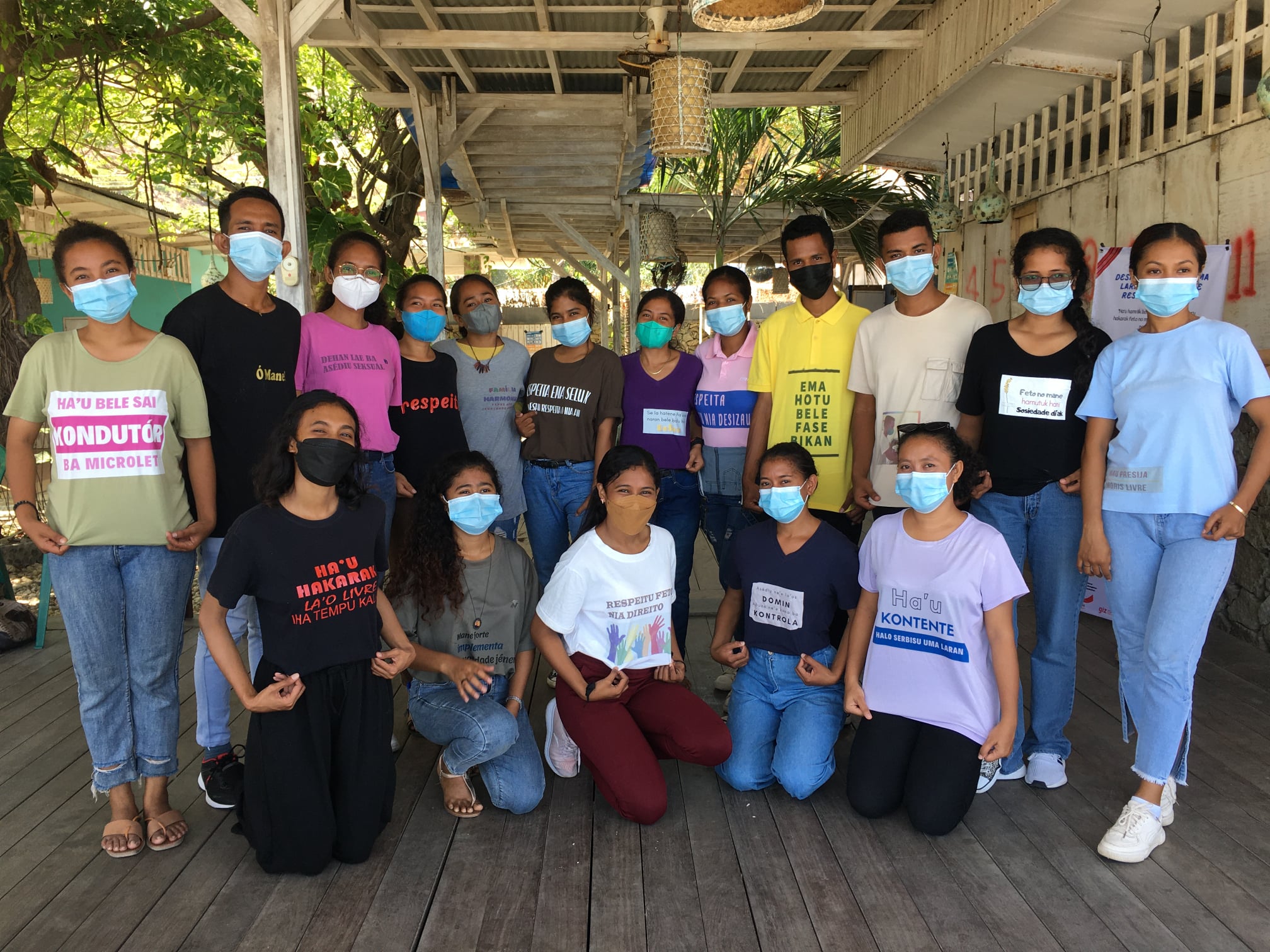Importantly, recognising the particular vulnerabilities of young women living with disabilities, JDN has reached out to disability advocacy organisations to explore how best to make their campaigns inclusive. Through these collaborations, JDN has provided tailored workshops to 64 young women living with disabilities. JDN writes “We worked with six different disability organisations to engage young people with disabilities in this event to educate them about how to prevent sexual harassment and increase gender equality, using reflection on their own experiences, guest speakers, t-shirt design, story corner, photo frame designs, learning sign language, cooking demonstration. From this 18 young women signed up as sexual harassment activists.”
JDN see the importance of engaging young men in this work, engaging young men in workshops to support them to recognise and call out gender inequality and discrimination in the community and their homes. They have engaged 40 young men in train the trainer workshops across four ‘sucos’ and invited those men to become gender equality ‘influencers’, responsible for changing their own behaviours, taking on household chores, and engaging with their peers about gender equality.
As well as working with young people to raise awareness about gender-based violence and challenge gender stereotypes, JDN are running a highly targeted campaign focused on improving safety on microlets (small public buses) through implementing a Code of Conduct. JDN have run a workshop with 18 microlet drivers to raise awareness on what sexual harassment looks like and the role of the Code of Conduct, and they are soon to launch a report based on interviews with 25 microlet drivers. Over 50 microlet buses now display anti sexual harassment stickers designed by JDN activists and over the past six months, five young women have become microlet drivers in this notoriously male industry. In March, JDN activists met with the Timorese government’s Director-General of Transport to present their report on interviews with microlet drivers and advocate for a Code of Conduct.
Reflecting on the challenges and learnings over the first six months, JDN particularly draws on their work with young men. In their report, they write: “Young male influencers have been challenged by both family and friends in their communities and it has been difficult to address those challenges. Often young men are referred to as ‘gay’ if they participate in household chores. There is a lot of difficulty moving to change in this area as many people see the gender role stereotyping as part of their culture and it is not seen as the discrimination of women. Challenging this requires a lot of perseverance and understanding and recognition that change will be slow. We recognise the importance of finding smaller actions that move towards our goal – for example in safe transport we will continue to work towards a code of conduct but we need to find interim actions (eg. the stickers on the microlets) that continue to keep the issue alive in the public space.”
It has been an incredibly busy first six months for JDN and we look forward to seeing what the next six months (and beyond!) bring.
Meet JDN’s sexual harassment activists




